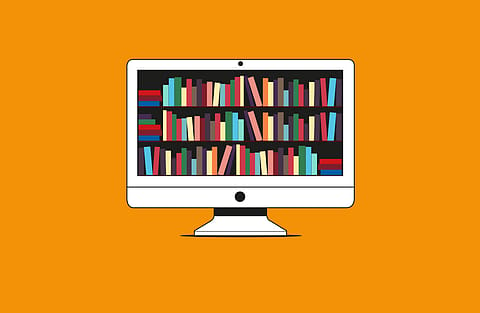The year that transformed the education industry
Every sector responded to Covid-19 in their own way, and a complex part of this response was seen in the education industry. But it stayed resolute, showing that the desire to learn can't be quenched.

All of us reading this article today, have a common distinction that binds us together. We mark a generation that has survived a year made for the history books. I say that not just because the rise of the Coronavirus pandemic was unprecedented, but because, in its wake, the ingenuity, strength and adaptability we have shown as a global community is awe-inspiring. Every sector from healthcare to retail to manufacturing responded to the pandemic in their own way, and a complex part of this adaptation exercise was underway in the education industry almost as early as April this year.
With 1.3 billion learners affected globally, 275 million (UNESCO, UNICEF report) of which were from India alone, the industry has been through a top-down overhaul this past year. As chaotic as this sounds, today when we look back, what we are left with is not a story of unbridled disruption, but one of grit, determination, and the spirit to keep learning.
Teachers paving the way
One of the first people to adapt to the pandemic with respect to education were teachers. With school closures coinciding with exam season, teachers everywhere upskilled themselves in a matter of weeks to bring their classes online. In a sense, they were the first responders to save education from the disruption of the Coronavirus.
A profession that has long waited for its due, they yet again showed us that their effort and determination to impart knowledge is unparalleled. Through the execution of their online classes, teachers also proved their potential to learn and digitise their skills. The common myth that chalk-and-talk teachers cannot or do not possess technological aptitude is something this pandemic definitely helped dispel. I personally have seen teachers of every age, pick up digital skills and conduct their classes beautifully online.
The student and parent response
As teachers geared up to bring their classes online we cannot overlook the large student population who have adapted to a new way of learning seamlessly. Close to 130 countries imposed nationwide school closures at the start of the pandemic with India doing this as early as the month of March. With students at home without school, families started looking for options to ensure learning does not stop for their children. This is where online learning entered the picture at large. What was interesting, however, was the welcome reception it got from both students and parents alike.
Recommended Stories
With a generation of digital natives, I believe the reason for this quick adaptation to digital learning tools lies in the fact that it gives children much more control over what they learn and they get to learn in a format that they love. Yes, they do have to attend scheduled classes online, but their practice, revision and tests can now be done as per their convenience at their own pace. This is a powerful step in empowering children to learn on their own and eventually becoming lifelong learners.
One of the first people to adapt to the pandemic with respect to education were teachers. With school closures coinciding with exam season, teachers everywhere upskilled themselves in a matter of weeks to bring their classes online. In a sense, they were the first responders to save education from the disruption of the Coronavirus.
Learn unlearn relearn is the winning mantra
In terms of education, I believe 2020 has taught all the stakeholders involved in learning a valuable lesson - that to survive and thrive we have to learn, unlearn and relearn. Whether it is teachers whose modus operandi changed completely, students who had to learn in a whole new way or parents who had to support their children through online school - everybody had to adapt to a fast-changing environment in a very short period of time. This, I believe, is going to be an essential skill in the future with or without a pandemic crisis.
The rate at which the world is getting digitised, the language of technology will become the common tongue of work. In any field we pick today, there is a digital revolution underway. This means that students who will be the workforce of tomorrow need to be comfortable with the rapid rate of change that comes with working with technology. The only way they can rise up to be the problem-solvers and innovators of tomorrow is by being lifelong learners today. ‘Learn, unlearn relearn’ will have to be the go-to mantra of any aspiring student and infusing technology in their education is a powerful way to help them inculcate it.
(INR CR)
Views are personal. The author is co-founder, BYJU’S.